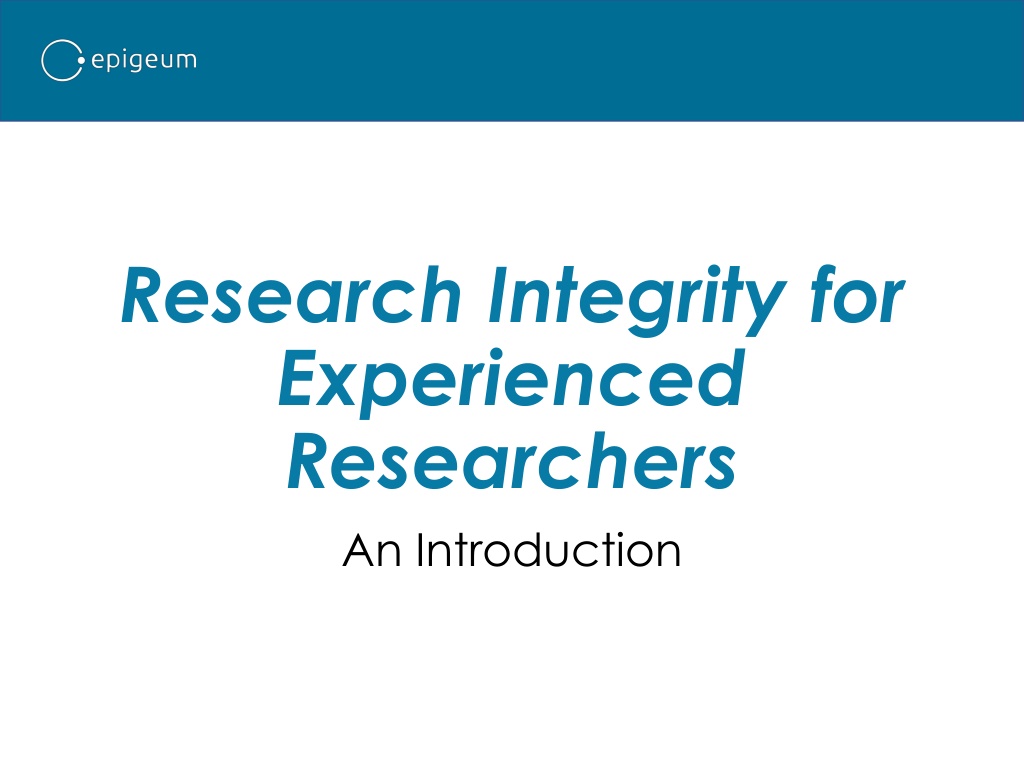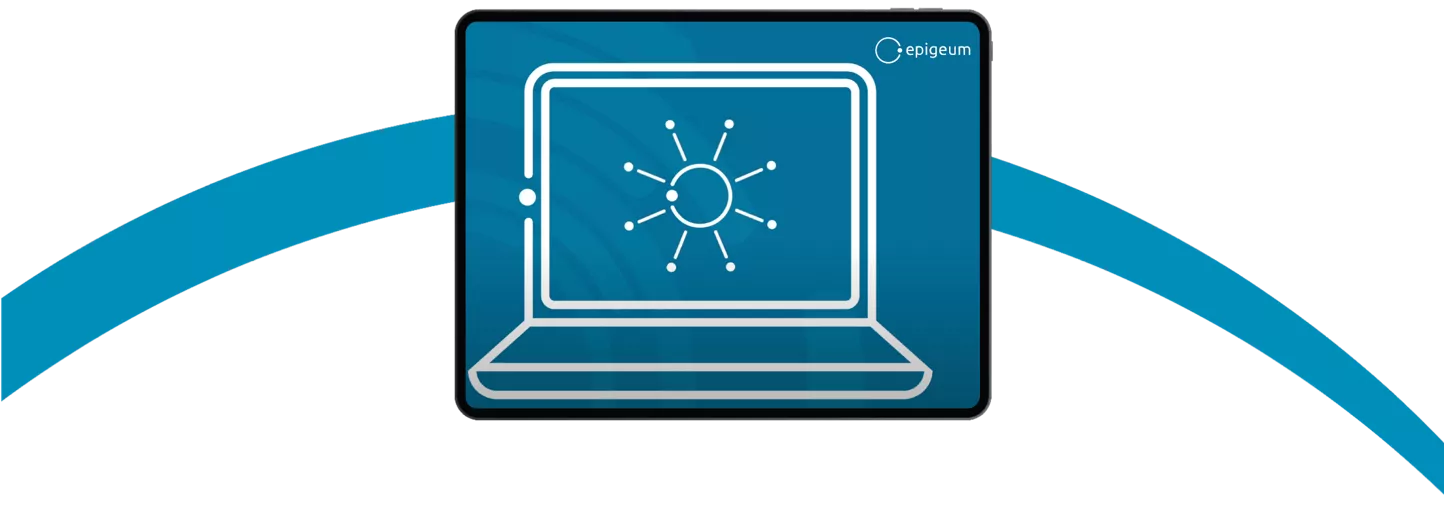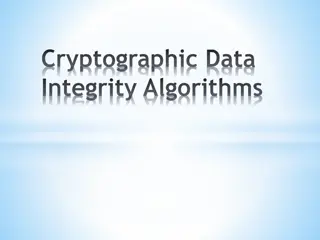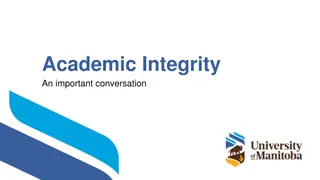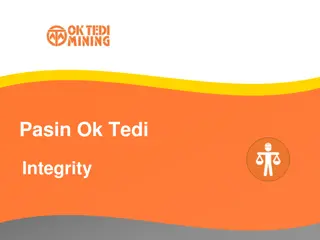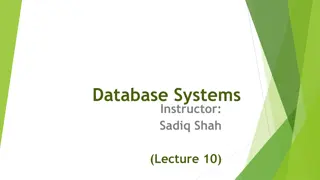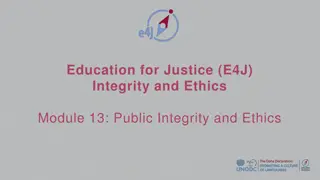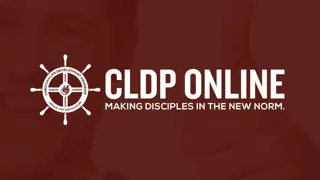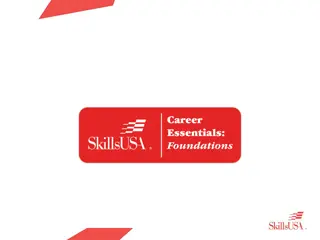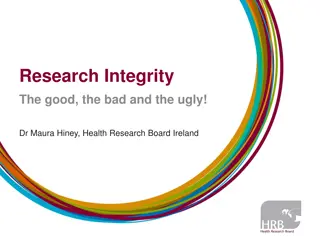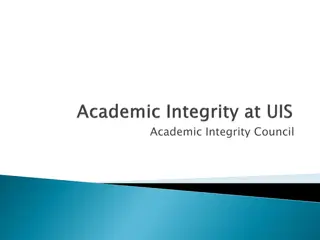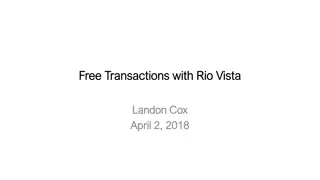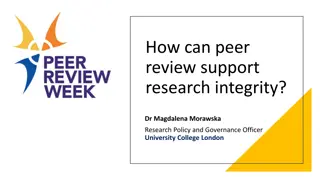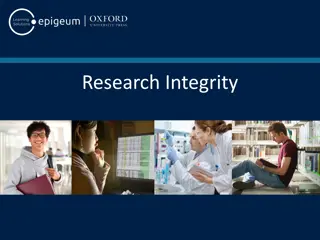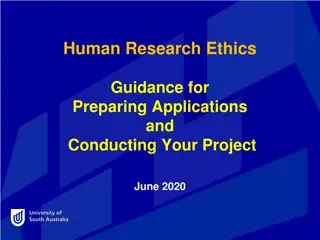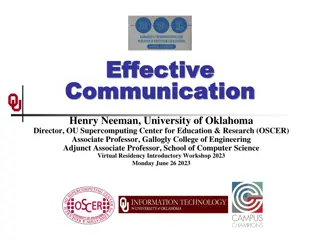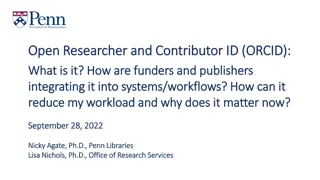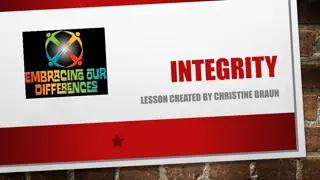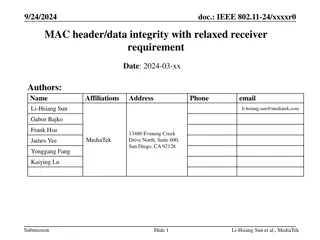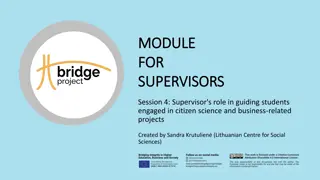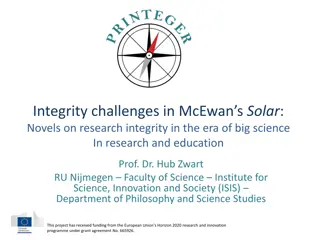Enhancing Research Integrity for Experienced Researchers
Advance your research integrity skills with Epigeum's interactive online course tailored for experienced researchers. Covering authorship disputes, data management, collaborations, and more, this program provides practical guidance to support institutions in fostering a culture of research integrity.
Download Presentation

Please find below an Image/Link to download the presentation.
The content on the website is provided AS IS for your information and personal use only. It may not be sold, licensed, or shared on other websites without obtaining consent from the author. Download presentation by click this link. If you encounter any issues during the download, it is possible that the publisher has removed the file from their server.
E N D
Presentation Transcript
Research Integrity for Experienced Researchers An Introduction
About Epigeum Founded at Imperial College London in 2005, Epigeum was acquired by Oxford University Press in 2015 and later by SAGE Publishing in 2023. We are a leading provider of interactive, online courseware for universities and colleges worldwide making consistent, cost-effective training achievable for all. Watch our introductory video
Epigeum Programmes Epigeum programmes support the core activities of universities and colleges in three key areas. Evidence-based learning design, cutting-edge technology, and comprehensive subject knowledge ensure that each programme delivers training of the highest quality.
Epigeum Research Programmes The Epigeum Research programmes support academics throughout all stages of their career, and are flexible enough to fit around a researcher s busy schedule. Programme materials are developed to reflect key issues in research practice, build vital knowledge and skills, and encourage researchers to reflect on their own practices and opportunities for further development.
Research Integrity for Experienced Researchers: Overview Advance your experienced researchers skillset to deliver best practice in Research Integrity at all levels Research Integrity for Experienced Researchers addresses key topics and challenges faced by researchers more established in their careers, including authorship disputes, data management and reproducibility, and managing collaborations. Combining an interactive scenario-based approach with clear practical guidance, this innovative new course is an essential resource in helping to support institutions ongoing commitment to researcher training.
Research Integrity portfolio differentiation Research Integrity 2.0 Research Integrity for Experienced Researchers Professional researchers across all main subject disciplines. Postgraduate students, postdoctoral researchers, and early-career researchers across disciplines. Audience 4 hours of core content, plus supplementary modules. 1.5-2 hours of content broken down into 15 20-minute modules. Course timing Necessarily pitched at a lower experience level in terms of prior knowledge around research integrity issues, core topic coverage, and the level and pitching of scenarios. Content includes good research conduct, irresponsible research practices, data selection, publication, responsibilities, and communication. Pitched at a higher experience level in terms of prior knowledge and topics explored. Addresses oversight and leadership aspects, acknowledging senior researchers have significant influence on wider research culture and behaviours impacting integrity. Scenarios pitched from the perspective of more experienced researchers. Content The content and learning design have been comprehensively rewritten and restructured to drive active learning, reflection, and engagement, integrating animations, polls, video interviews, and a range of activities. Adopts a scenario and case study-based approach to anchor content in real world challenges and practical solutions. Concise modules signpost out to further support, tools, and guidance. Approach
Research Integrity for Experienced Researchers: Lead Advisor Professor Marcus Munaf Professor of Biological Psychology & Associate Pro Vice Chancellor for Research Culture, University of Bristol. Chair of the UK Reproducibility Network Steering Group.
Research Integrity for Experienced Researchers: Authors Alison Denny, Programme Manager, Bristol Medical School, University of Bristol Dr Jim Grange, Reader in Psychology, University Academic Lead for Research Integrity & Improvement, Keele University Professor Will Harvey, Inaugural Professor of Leadership at the University of Bristol Business School, International Research Fellow at the Oxford University Centre for Corporate Reputation, Chair of the Board of Libraries Unlimited Dr Samantha Oakley, Research Integrity Specialist, Governance, Policy and Integrity team, University of Glasgow Dr Julia Paulson, University of Bristol, Professor of Education, Peace and Conflict, University of Bristol Dr Tania Saeed, Associate Professor of Sociology, Lahore University of Management Sciences (LUMS), Pakistan and Marie Sk odowska-Curie Fellow, Universit Ca' Foscari Venezia, Italy Dr Maria Uther, Professor of Psychology & Associate Dean for Research and Knowledge Exchange, Faculty of Health, Education and Wellbeing, University of Wolverhampton
Research Integrity for Experienced Researchers: Reviewers Natasha Awais-Dean,Research Integrity Manager, Kings College London Matthew Billington, Research Ethics and Research Integrity Manager, University of Liverpool S ren Holm, Professor of Bioethics, University of Manchester Simon Kolstoe, Reader in Bioethics & University Ethics Advisor, University of Portsmouth Serena Mitchell, Research Integrity Manager, King's College London Niall O'Loughlin, Director of Research and Knowledge Exchange, University of Nottingham Mads P. S rensen, Senior Researcher, Aarhus University Antony Walsh, Head of Research Governance, Ethics and Compliance, University of Exeter
Research Integrity for Experienced Researchers: Key features Individual modules are grouped by three key Research Integrity themes: professional behaviours, the research process, and collaboration. The flexible modular structure enables the learner to select topics at the point of need or be directed to relevant areas by their institution. Learners engage with authentic real-world scenarios in every module, where they can identify potential risks to Research Integrity, reflect on the course of action and implement an appropriate management strategy. Feedback is provided as the scenario develops. Addresses current Research Integrity issues, challenges, and key emerging topic areas and subsequently supports next steps or further learning by providing easy access and signposting to additional guidance.
Research Integrity for Experienced Researchers: Structure Professional Behaviours Module 2 Responsible Leadership and Communication Module 1 Research Culture and Fostering Research Integrity Module 3 Authorship Issues and Disputes Building a positive research culture Developing a positive research culture Researcher development and mentorship Putting a positive research culture into practice Responsible research leadership Identifying your principal relationships Communicating and giving feedback as a leader Listening and reflecting on communication Introducing authorship issues in research Causes of authorship disputes Strategies for good authorship Dealing with authorship disputes Ethical Publication
Research Integrity for Experienced Researchers: Structure The Research Process Module 5 Data Management and Open Data Module 4 Project Planning Module 6 Transparency and Reproducibility Module 7 Open Research Enhancing research integrity with project planning Make a project plan Project planning dates and timelines Budget planning and management Introducing the data lifecycle and data management Data management and open data FAIR practices for data sharing Finding and reusing data Reflecting on data Introduction to transparency and reproducibility Challenges to transparency and reproducibility Solutions to enhance transparency and reproducibility Reflections on transparency and reproducibility Defining open research Preregistering research Open access publishing Reflecting on open research
Research Integrity for Experienced Researchers: Structure Collaboration Module 8 Equitable Partnerships Module 9 International Collaborations Introducing equitable partnerships in research Challenges to achieving equitable partnerships Decolonising research for equitable partnerships Positive practices in research partnerships Ethics and integrity in international research collaborations Managing risks in international research collaborations Overcoming challenges to international collaborations Disseminating research equitably in international collaborations
Implementation and customisation Research Integrity for Experienced Researchers can be hosted on your institution s Virtual Learning Environment, or you can provide access for your students via Epigeum s dedicated online platform. Research Integrity for Experienced Researchers is accompanied by an Instructor Manual, as well as other resources to support you to implement the programme at your institution. However you choose to deliver Research Integrity for Experienced Researchers, we will provide on-boarding and technical support every step of the way, in the form of promotional tools, workshops, and webinars.
Visit our website for more details on Research Integrity for Experienced Researchers: https://www.epigeum.com/courses /research/research-integrity- experienced/
